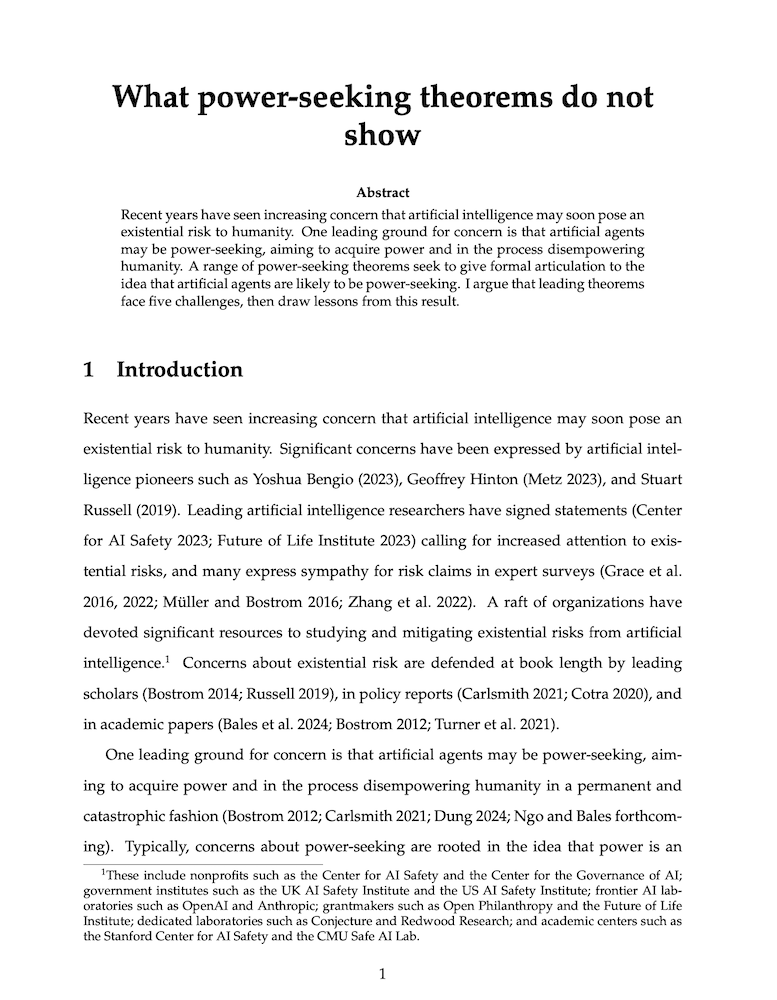What power-seeking theorems do not show
David Thorstad (Vanderbilt University)
GPI Working Paper No. 27-2024
Recent years have seen increasing concern that artificial intelligence may soon pose an existential risk to humanity. One leading ground for concern is that artificial agents may be power-seeking, aiming to acquire power and in the process disempowering humanity. A range of power-seeking theorems seek to give formal articulation to the idea that artificial agents are likely to be power-seeking. I argue that leading theorems face five challenges, then draw lessons from this result.
Other working papers
AI alignment vs AI ethical treatment: Ten challenges – Adam Bradley (Lingnan University) and Bradford Saad (Global Priorities Institute, University of Oxford)
A morally acceptable course of AI development should avoid two dangers: creating unaligned AI systems that pose a threat to humanity and mistreating AI systems that merit moral consideration in their own right. This paper argues these two dangers interact and that if we create AI systems that merit moral consideration, simultaneously avoiding both of these dangers would be extremely challenging. While our argument is straightforward and supported by a wide range of pretheoretical moral judgments, it has far-reaching…
Meaning, medicine and merit – Andreas Mogensen (Global Priorities Institute, Oxford University)
Given the inevitability of scarcity, should public institutions ration healthcare resources so as to prioritize those who contribute more to society? Intuitively, we may feel that this would be somehow inegalitarian. I argue that the egalitarian objection to prioritizing treatment on the basis of patients’ usefulness to others is best thought…
Are we living at the hinge of history? – William MacAskill (Global Priorities Institute, Oxford University)
In the final pages of On What Matters, Volume II, Derek Parfit comments: ‘We live during the hinge of history… If we act wisely in the next few centuries, humanity will survive its most dangerous and decisive period… What now matters most is that we avoid ending human history.’ This passage echoes Parfit’s comment, in Reasons and Persons, that ‘the next few centuries will be the most important in human history’. …

